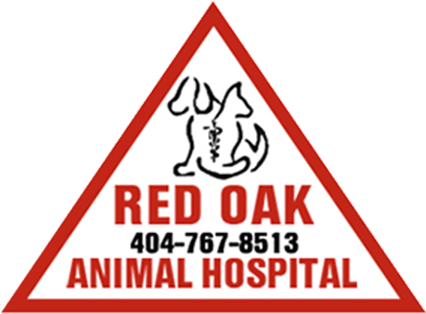Hyperthyroid
Hyperthyroidism in Pets in Atlanta, Georgia: Understanding, Managing, and Supporting Your Furry Friend's Health
Hyperthyroidism is a common condition affecting pets in Atlanta, Georgia, much like it does in other regions. Atlanta's vibrant pet community and diverse environment provide numerous opportunities for proactive pet care. In this article, we will explore what hyperthyroidism is, its common causes, symptoms, and how to provide the best care for pets dealing with this condition in the Atlanta area.
Understanding Hyperthyroidism in Pets: Hyperthyroidism is a disorder of the thyroid gland, which is responsible for regulating metabolism in the body. In pets, particularly cats, this condition results from an overproduction of thyroid hormones, leading to an accelerated metabolic rate. It can affect cats of all ages, but it is more common in older felines. Early diagnosis and management are crucial for maintaining your pet's health.
Common Causes and Risk Factors for Hyperthyroidism in Atlanta:
- Age: Hyperthyroidism is more prevalent in older pets, and Atlanta's pet-loving community often includes seniors.
- Diet: Atlanta's diverse culinary scene and pet food options can sometimes contribute to dietary choices that affect thyroid health in pets.
- Environmental Toxins: The urban environment in Atlanta may expose pets to environmental toxins that can disrupt thyroid function.
Symptoms of Hyperthyroidism in Pets: Pets with hyperthyroidism may exhibit various symptoms, including:
- Increased appetite accompanied by weight loss
- Restlessness or hyperactivity
- Excessive thirst and urination
- Vomiting or diarrhea
- Rapid heart rate
- Enlarged thyroid glands (seen as a swelling in the neck)
- Poor coat condition
Managing Hyperthyroidism in Pets in Atlanta: If your pet is diagnosed with hyperthyroidism, here are crucial steps to manage the condition effectively in the Atlanta area:
- Consult an Atlanta-Based Veterinarian:
- Seek a veterinarian who understands the unique challenges pets may face in Atlanta. They can provide a proper diagnosis and recommend a tailored treatment plan.
- Medication or Radioactive Iodine Treatment:
- Your veterinarian may prescribe medication or recommend radioactive iodine therapy to regulate your pet's thyroid hormones. Both treatments are effective but have their considerations.
- Diet:
- Your veterinarian may suggest a special diet that supports thyroid health or discuss dietary changes that can benefit your pet.
- Regular Monitoring:
- Schedule regular check-ups to monitor your pet's thyroid hormone levels and adjust the treatment plan as needed.
Preventing Hyperthyroidism in Atlanta Pets: While not all cases of hyperthyroidism can be prevented, you can reduce the risk by following these guidelines:
- Quality Nutrition:
- Provide your pet with a balanced diet suitable for their specific needs and avoid excessive iodine intake.
- Environmental Toxins:
- Be cautious about potential toxins in your pet's environment, both indoors and outdoors.
Hyperthyroidism is a manageable condition for pets in Atlanta, Georgia, with proactive pet care, early diagnosis, and expert veterinary guidance. By paying attention to your pet's thyroid health, diet, and environment, you can protect their well-being in the dynamic and pet-friendly community of Atlanta, ensuring a happy and healthy life for your fur babies.
